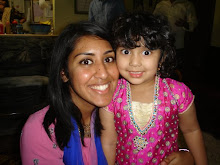Here are some remarks from the adorable Reza Aslan:
President Obama came to Cairo to forge what he called "a new beginning between the United States and Muslims around the world; one based upon mutual interest and mutual respect." He had his work cut out for him.
While Egyptians have far more confidence in President Obama than in President Bush (38% versus 8%), that is obviously not saying much. In fact, according to polling done by worldpublicopinion.org, there has been little change in Egyptians' views of American foreign policy. Some 76% still believe that the United States seeks to "weaken and divide" the Muslim world and 80% continue to argue that the US wants to impose "American culture" on Muslims. These numbers are essentially unchanged since the Bush Administration. Still, overall views of the US have improved dramatically, with 46% now holding a favorable opinion of America. Indeed, many Muslims admit to being cautiously optimistic that, at the very least, there can be a new tenor in relations between the US and the Muslim world, meaning that expectations for Obama's speech were extraordinarily high.
In some ways, Obama did not disappoint. Citing the Qur'anic verseIslam, and that the United States has not always lived up to its ideals. These may be historical facts that most university students are taught in their first year of studies, but they are rarely spoken of with such candour by an American president. "Be conscious of God and always speak the truth", Obama did something practically unheard of for an American president: he told the truth, and frankly. Obama acknowledged that colonialism had denied "rights and opportunities to many Muslims", that Muslim countries have often been treated as little more than proxies of the west, that Muslims sometimes have cause to view the US and the larger western world as hostile to Islam, and that the United States has not always lived up to its ideals. These may be historical facts that most university students are taught in their first year of studies, but they are rarely spoken of with such candour by an American president.
Yet as Obama himself acknowledged, it will take more than words to reframe the perception of America among Muslims. And so he spent a good deal of the speech focusing on some concrete issues that animate much of the Muslim world, most significantly the Israeli-Palestinian conflict. Here, too, little new was said. But once again it was the frankness with which Obama spoke of the situation, using terms that no American president would dream of using, that caught one's attention. Speaking movingly of the daily humiliations of the Palestinians, Obama referred to the situation in the Palestinian territories as "occupation", a word sure to ripple through both the Muslim world and the United States, and urged both sides in the conflict to live up to their obligations under the so-called road map to peace. "The United States does not accept the legitimacy of continued Israeli settlements", he said. "This construction violates previous agreements and undermines efforts to achieve peace. It is time for these settlements to stop."
Of course, every president since Jimmy Carter has called for an end to Israel's settlement activity and every corresponding Israeli government has ignored that call. Indeed, the current Likud government has blatantly rebuffed Obama's demand. Yisrael Katz, Israel's transport minister has flatly declared that the Israeli government "will not accept in any fashion that legal settlement activity be frozen." Never mind that, according to international law, UN Resolution 242, the Oslo Accords, and the road map to peace, which Israel itself has signed up to, there is no such thing as legal settlement activity in the occupied territories.
Unfortunately, Obama made no mention of the consequences for Israel's continued defiance of international law. Nor did he have much to offer the barest of platitudes for the one issue that poll after poll in the Muslim world indicates is the biggest concern of Muslims: the lack of political rights. Obama may have felt hamstrung by the presence of his host, Hosni Mubarak, one of the worst despots in the region, a man who runs a police state in which bloggers, journalists, and democracy activists, not to mention freely elected members of parliament, are routinely rounded up and jailed on trumped up charges. Nevertheless, the few words he did have on the topic of democracy received the loudest and most sustained applause, an indication that this is a topic that Obama cannot afford to ignore.
It remains to be seen whether this speech will launch the "new beginning" that Obama, and so many Muslims around the world, so desperately seek. But, at the very least, it has gotten the conversation started. And that may be all we could have hoped for.
After the speech, Obams visited the pyramids with his senior aides. I love that he is able to laugh at himself. Read some silly Obams humor here: (reports from Mark Knoller)
Serving as Mr. Obama’s guide in Giza was Dr. Zahi Hawass, Secretary-General of Egypt’s Supreme Council of Antiquities. He led the way in and around the pyramids and the Sphinx, including a visit to the Tomb of Qar, who Hawass described as a well-known priest, scholar and judge in ancient Egypt. On the wall were hieroglyphs of Qar, primitive images engraved in the stone. He was a thin man man with big ears.
“That looks like me!” exclaimed President Obama. “Look at those ears.”
An image of the hieroglyph:
The president summoned to his top aides to take a look, and repeated his observation about the Qar hieroglyph.
“Look, that’s me,” he told them. None of his senior staff was willing to disagree with the boss. Chief of Staff Rahm Emanuel smiled politely, if not knowingly.





0 comments: